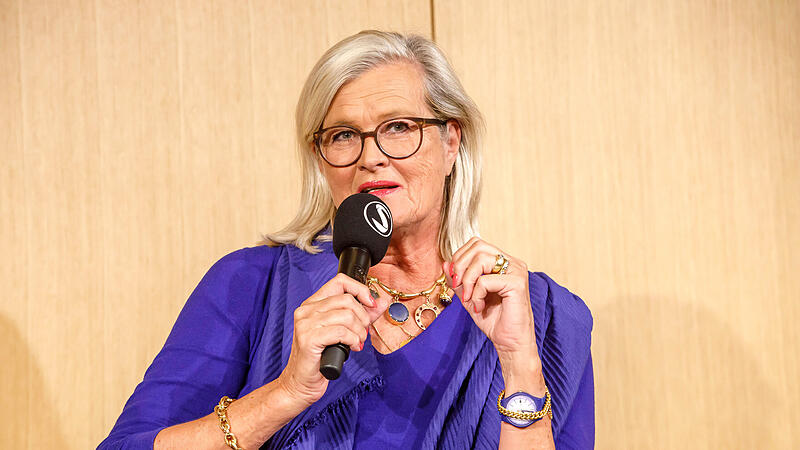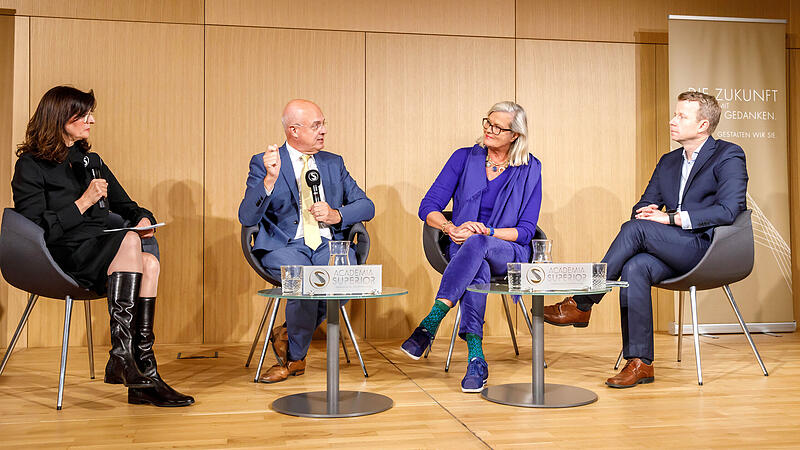Image: Hermann Wakolbinger

Image: Hermann Wakolbinger
The political center: Every second Austrian considers themselves ideologically part of it. “Not left and not right”is how around 53 percent would describe their political views.
But is the political center coming under pressure given the global crises of recent years and fears of relegation? Are people increasingly moving to the political fringes, which ultimately results in the often feared social division?
Pessimism is suitable for the masses
The think tank Academia Superior, which is close to the VP, invited people to a panel discussion on this topic on Thursday evening in the OÖN Forum in the Linz Promenade Galleries. In front of around 300 listeners (including former state governor Josef Pühringer), former VP Foreign Minister Ursula Plassnik, labor and social lawyer Wolfgang Mazal and Paul Eiselsberg from the Imas Institute discussed on the podium.

Image: Hermann Wakolbinger
According to pollster Eiselsberg, pessimism currently reigns in Austrian society. 73 percent of 1,028 respondents to the latest political social analysis said they were afraid of social decline. “This fear determines the political thinking of many people and puts pressure on the political center”says Eiselsberg. In addition, the majority of those surveyed expect negative developments in many areas, be it inflation, war or climate change.
It is precisely these fears and the prevailing pessimism that need answers from politicians “shared narrative based on optimism”adds Plassnik. “In contrast to the center, the political fringes are louder and more noticeable at the moment, and as minorities they have to be”, added the former foreign minister. The influx that populists are currently seeing can be explained simply: “In times of crisis, people look for simple solutions to complex problems.” However, according to Plassnik, the self-declared political center could “like to be a little louder”.
And what elements would this narrative have to contain? “For example, we could reflect on being able to overcome and overcome crises together”said Plassnik.
Respect for each other
In that put forward by Plassnik “shared narrative” However, according to Mazal, that is also needed “Courage to change”. Society has changed and will continue to change, and has also become more complex. “This creates new challenges, which one can and must accept”says Mazal. Politicians also have to put aside the fear “something wrong” to say or remain silent in order not to “to be put in the wrong light”.
However, Mazal sees one of the main problems in society in how we treat each other – both on the political stage and in our personal environment. “Consideration for vulnerability should not be missing in the democratic process or in conversations with acquaintances.”
My themes
For your saved topics were
new articles found.

info By clicking on the icon you can add the keyword to your topics.
info
Click on the icon to open yours “my themes” Page. They have of 15 keywords saved and would have to remove keywords.
info By clicking on the icon you can remove the keyword from your topics.
Add the topic to your topics.
Source: Nachrichten




